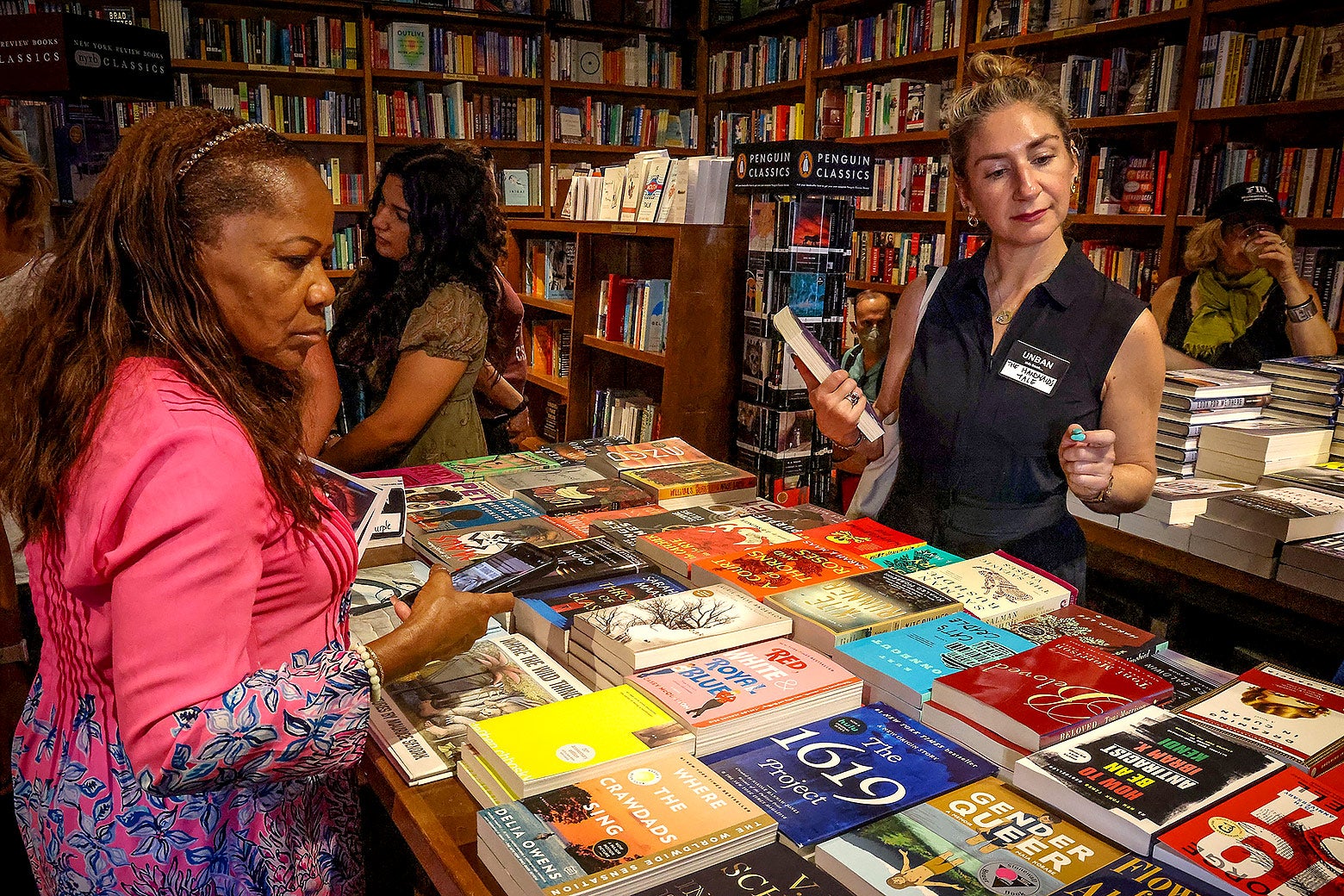The biggest publishing story of 2023 was the explosion of book-banning efforts in libraries and schools. While concentrated in Florida and Texas, attempts to ban books featuring LGBTQ+ characters or focusing on America’s racial history have spread to a total of 21 states. Such campaigns tend to draw from playbooks created by well-funded conservative organizations affiliated with the GOP, whose motivations aren’t hard to surmise. Simply put, they want to undermine and eventually dismantle public school and library systems under the banner of “parental rights” so that rich people can pay even less tax.
To persuade the voters who actually benefit from schools and libraries to support this plan, groups like Moms for Liberty drum up culture-war panics. The easiest way to do this is to capitalize on parents’ fear that their children will learn about sex in a way they consider unhealthy or inappropriate. This tactic generates so much heat in the form of legislation, lawsuits, criminal complaints, protests, teacher firings, sex scandals, and shouting matches at school board meetings that the furor obscures a crucial fact: Even if right-wing book bans persist and triumph, they’ll never achieve what their most ardent foot soldiers want.
Anxieties about how and when children learn about sex are understandable, and shared by many politically progressive parents. But a lot of social conservatives seem to believe that if their kids simply never find out about homosexuality or transgenderism, they’re guaranteed to grow up to be cisgendered heterosexuals. First of all, any number of queer people who grew up in small towns in the 1970s will be happy to assure you this isn’t true. But secondly, these days, banning books about LGBTQ+ issues wouldn’t succeed in shielding kids from this forbidden knowledge—because that’s not how kids are discovering it in the first place.
A recent Washington Post article about book banning in one Florida community offers an inadvertent testimonial to this truth. An oral history of sorts, the story consists of long quotations by various residents of Escambia County, from a tearful teacher who can’t read a history book to her class without a permission slip to a pastor who’s “totally glad” that his activism caused “bad books” to be removed from the local schools.
One source, a student, describes being raised “very religious. The kind of Christianity that says you go to hell if you’re gay,” then goes on to explain (emphasis mine):
I grew out of that. I did my own reading online. I made friends who were gay. I realized gay people aren’t possessed by demons. They’re just people. I’m 17 now, and I’m pansexual, which means I like anybody. I’m also transgender and nonbinary, because I don’t identify with male or female.
While this teen was dismayed when the library that had once been their safe hangout was suddenly denuded of books, never do they indicate that their journey away from Christian conservatism to nonbinary transgender pansexuality began with a book in that library. The reading that fostered their transformation was done online.
Conservative book bans recall the old joke about the drunk who loses his car keys in the park but searches for them under a streetlight because that’s where the light is. Conservative parents can’t keep their kids from being exposed to “bad” information or ideas on the internet, but they can badger school boards into withdrawing books containing those ideas. The most this can do for them is to suggest to LGBTQ+ kids that the other adult authority figures in their lives share the bigotry of their parents—a cruel form of comfort, and one those kids learn almost immediately from their peers isn’t actually true.
As for the conservative advocacy groups behind the book ban movement, they can’t lose. That’s because their goal isn’t to protect kids but to bring about the (highly profitable) privatization of American education. To that end, they aim to discredit public schools as a tool of liberal “indoctrination” and to encourage the harassment of public servants, driving them out of their jobs so that they can be replaced by compliant conservatives. This they can accomplish even if all their book bans (which the majority of American oppose) are overturned. As disturbing as book bans are, they’re just one step in a larger agenda. If that agenda succeeds, the same people campaigning to keep Gender Queer out of their library will someday wonder why it is they don’t have a library at all.
